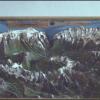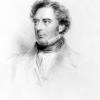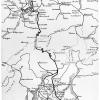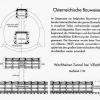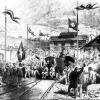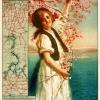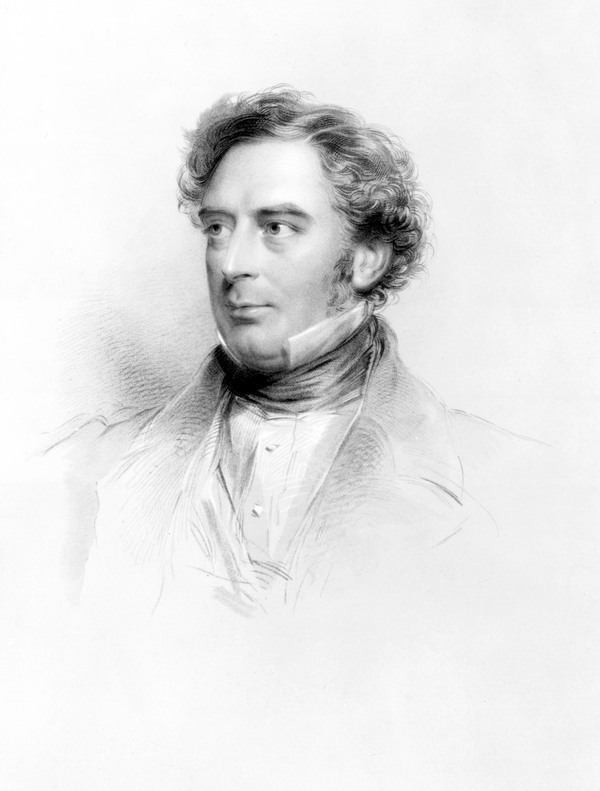Beginnings of railways, beginnings of nations
The federal state of Switzerland and the first railways in Switzerland are around the same age, but they have not always served the same purpose.
The purpose of the earliest railways was to cross the border. In 1844, an extension of the French railway from Strasbourg and Mulhouse was made to the Swiss city of Basel, just over the border. On August 7, 1847, the Northern Railway, which was the first railway entirely on Swiss soil, was built between Zürich and the Swiss town of Baden, with the goal of eventually connecting with cities in Germany.
Three months after this first railway opened, civil war broke out between the "special alliance" (Sonderbund) of seven Catholic cantons and the Protestant cantons. Following the defeat of the Sonderbund, a new Swiss Federal Constitution was drafted, creating the first Swiss federal state. This new Federal Assembly set about creating new uniform structures for the country, including a postal service, telegraph, and unified currency. It also sought to create a federal railway network that would connect the country and open it to Europe.
In 1850, the assembly invited British engineers Robert Stephenson (son and collaborator of George Stephenson) and Henry Swineburne to advise on a network for the new state. The visiting engineers provided a series of recommendations, but considered tunneling through the Alps to be largely unworkable with the state of engineering at the time.
Their ideas proved academic: in 1852, the Swiss state abandoned ideas for a federal railway network and left railway development to the individual cantons, which in turn granted concessions to private railway companies.
 Previous Story
Next Story
Previous Story
Next Story
How to cite this page
Alexander Badenoch, 'Beginnings of railways, beginnings of nations', Inventing Europe, http://www.inventingeurope.eu/infrastructures/beginnings-of-railways-beginnings-of-nations
Sources
- Schueler, Judith. Materialising Identity: The Co-Construction of the Gotthard Railway and Swiss National Identity. Amsterdam: Aksant, 2008





